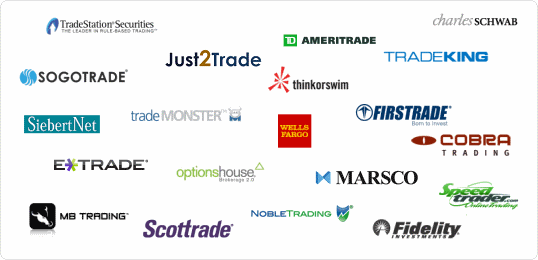Introduction to Investing How Do I Choose and Use a Broker
Post on: 29 Май, 2015 No Comment

Basics for Beginners What’s the difference between a full-service broker (stockbroker) and a discount broker, and how do you choose a broker? Full-service may sound like something you should definitely have, but before you decide, make sure you know exactly what that means, what it doesn’t mean, and what it’s going to cost you.
Full-Service Brokers
Full-service brokers work for large brokerage houses like Citigroup, Merrill Lynch, Smith Barney, and Morgan Stanley. All brokers will execute trades for their clients, but a full-service broker will also research various investments and give advice.
However, unless you’re very savvy about the ins and outs of investing, you won’t know whether you’re getting good advice or advice that will take money from your pocket and put it in the broker’s.
Another issue in choosing a broker is that there’s no guarantee that the broker or Financial Consultant is any better than you are at choosing investments.
Ideally, a full-service broker thoroughly researches various investments and keeps you up-to-date with market trends, stock performance, and tax laws, while providing you with investment ideas and recommendations.
You pay a healthy fee for these services, so brokers are most suited for those who have a significant investment portfolio and don’t have the time or desire to manage their own investments. Even so, it’s important for you to have the final word on any investment changes. Beware of wording to the contrary in your written agreement.
In return for these services, full-service brokers charge high fees when you buy or sell stocks. For example, you could expect to pay as much as $150 for an average trade with a full-service broker, where the same service would cost between $5 and $30 online with a discount broker.
Full-service brokers also typically charge annual service charges or maintenance fees on your account. Most disturbing, because most full-service brokers receive commissions every time they execute a trade for a client, their compensation is largely determined by how many times they buy and sell stocks in your account. Those who are less scrupulous may be buying and selling stocks in your account, not because the decision is wise, but because the benefits to the broker are greater.
This is not to say that you shouldn’t use a broker, but if you do, go into it with your eyes wide open, thoroughly check the broker out, and never give anybody carte blanche to invest your money.
Discount Brokers
Some of the best-known discount brokerages are E-Trade, Sharebuilder, Fidelity, Charles Schwab, and TD Ameritrade. Discount brokers often make more sense for the average investor because they’re more affordable, and if you want to make your own decisions, a discount broker may be the way to go.
Before you sign up, make sure the broker deals in the type of investment you plan to make (stocks, bonds, mutual funds, options, or whatever it may be). Review the schedule of fees to find out what you’d be paying for commissions, account maintenance, and other fees. Check out the list of other services the brokerage offers. Some of them may be important to you, such as the ability to write checks on your account, the ability to make trades over the telephone, or the availability of research information about different stocks, bonds, and mutual funds.
Opening a Brokerage Account
Once you choose a brokerage, whether it’s full-service or discount, download the application forms from the brokerage’s Web site, and send in the completed forms with a check to fund your account. As soon as the account is open, you can begin trading.
Brokerages may require a minimum balance of anywhere from $500 to $2,000. If you’re opening an IRA, they may waive the minimum requirement.














